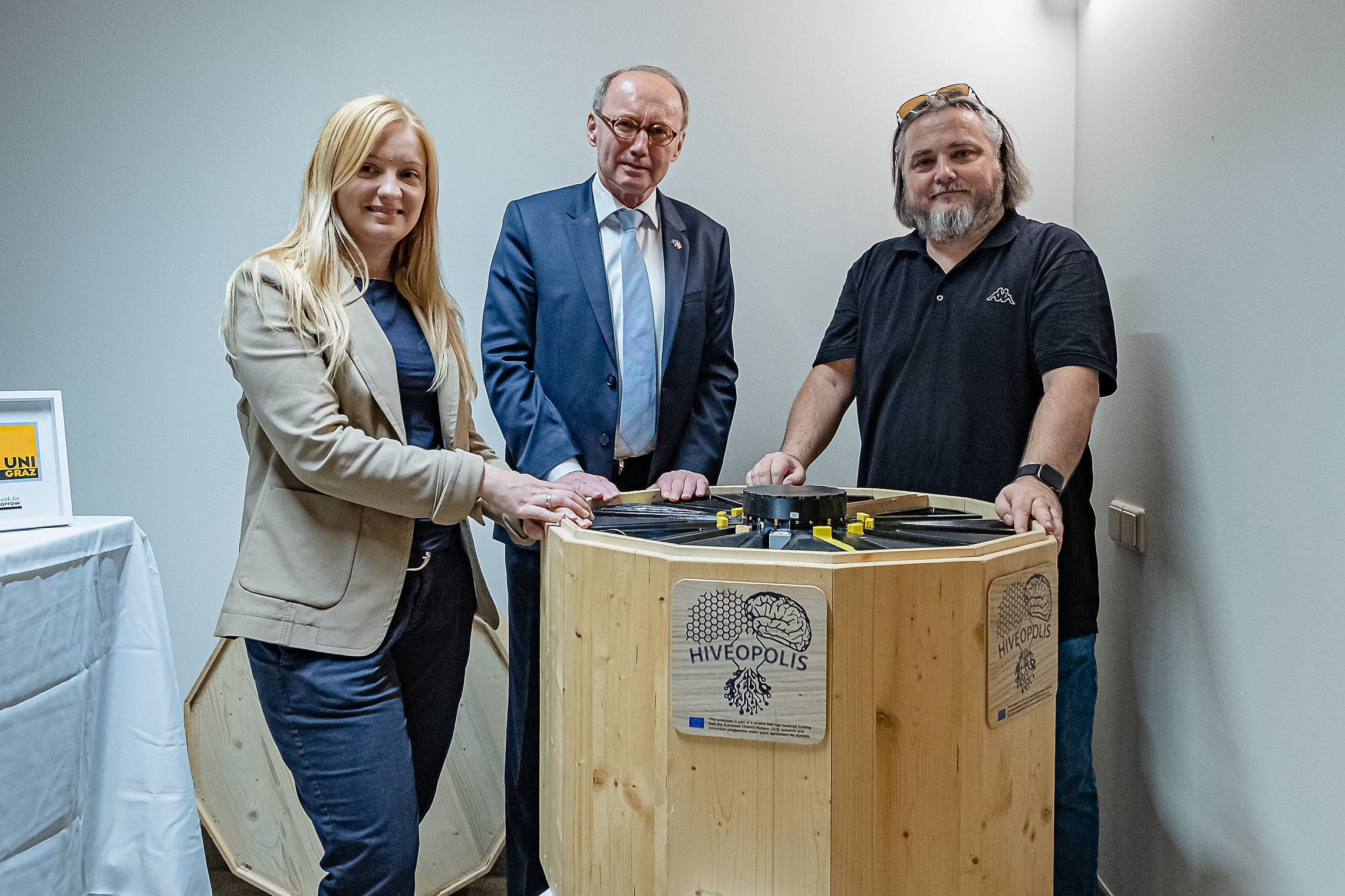At the University of Graz, a strong research cluster (multiple professors) researches honeybees’ health, physiology and ecology. In a recent kick-off event in Graz, a natural flower meadow was seeded at university grounds. This re-naturalized habitat will support honeybees, wild bees and other pollinators. In this meeting, also first contacts between honeybee researchers and the agricultural sector was made. At this occasion the vice-president of the European Parliament, Othmar Karas, and the managing director of Frutura (https://frutura.com/ueber-uns/), Katrin Hohensinner, visited the labs of the workgroup led by Thomas Schmickl, which focuses on the potential synergies of honeybees and modern technology (https://alife.uni-graz.at). The researcher informed the visitors about how modern digital technology can support sustainable pollination of important food crops by showcasing the first prototype of the „beehive of the future“. This prototype is currently developed in the international EU project Hiveopolis (https://www.hiveopolis.eu), which is coordinated by Thomas Schmickl. In addition to this prototype, also research setups of the international EU project „RoboRoyale“ (https://roboroyale.eu) where demonstrated to the visitors by Thomas Schmickl and his team. Frutura produces 230,000 tons of fruits and vegetables in a climate-friendly and sustainable way each year. For example, locally available geothermal energy is used for heating greenhouses in a carbon neutral method. This way, the daily fruit and vegetable supply for 3 million consumers and 1.3 million households is produced and delivered freshly. These crops are grown locally, thus approximately 1 million truck kilometers of heavy-goods transportation are prevented. The cooperation with the University of Graz is organized as part of the BioBienenApfel initiative (https://frutura.com/biobienenapfel/), in which also SPAR Austria participates, one of Austrias largest food distributors with more than 1,600 outlets across the country. In a related cooperation, the honeybee researcher Robert Brodschneider, is member of the SPAR Bienenrat (https://www.spar.at/nachhaltigkeit/produkte/vielfalt/bienenrat/), which has the goal of bringing together bee researchers (honeybees and wild bees), agricultural producers, vendors and environmentalists. In his work, Robert Brodschneider monitors the yearly survival of honeybee colonies across Europe, an important source of information for dealing with the disease Colony Collapse Disorder that honeybees. In addition he conducts several other international citizen-science and developmental aid projects focussing on topics of honeybee behaviors, pollination and beekeeping.
Montag, 16.05.2022
